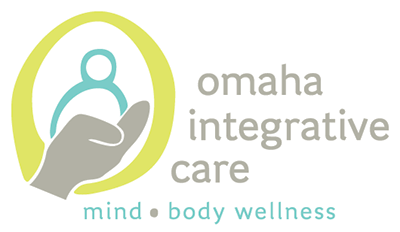 In Provider Picks, a member of the OIC team shares a few of their favorite resources, which might include books, apps, podcasts, videos, or other helpful tools. In this installment, Dr. Kristen Menke shares some of her go-to books and websites.
In Provider Picks, a member of the OIC team shares a few of their favorite resources, which might include books, apps, podcasts, videos, or other helpful tools. In this installment, Dr. Kristen Menke shares some of her go-to books and websites.
If you tend to be really hard on yourself, try …
“The Mindful Self-Compassion Workbook”
As a therapist who uses primarily Acceptance and Commitment Therapy with individuals, I frequently recommend the “The Mindful Self-Compassion Workbook” by Dr. Kristin Neff as well as her website, Self-compassion.org. Her research suggests that when we treat ourselves with the same kindness, warmth, understanding, and encouragement that we offer to our friends and loved ones, we can reduce the distress attached to painful emotions and thoughts.
If you are looking for a relatable and applicable read, try …
“The Happiness Trap”
In his books, Dr. Russ Harris describes the principles of Acceptance and Commitment Therapy without over-relying on jargon. Instead, he uses humor and real-life examples to illustrate his points. “The Happiness Trap” relates mostly to depression, while “The Confidence Gap” addresses self-esteem, and “The Reality Slap” applies ACT to grief and adjustment. I love every book of his that I have read and recommend them frequently to clients as fast-reading, enjoyable, relatable, and applicable resources. https://thehappinesstrap.com/free-resources/
If you tend to judge or fight against your emotions, try …
“Mindfulness and Acceptance Workbook for Anxiety”
As an anxiety specialist, I love the “Mindfulness and Acceptance Workbook for Anxiety.” The same publisher (New Harbinger) also has books applying mindfulness and acceptance practices in workbook form for depression, self-esteem, social anxiety, stress reduction, bulimia, and more. It facilitates distress tolerance using nonjudgmental awareness and letting go of resistance to our painful feelings, instead using our energy to stay present in our lives. The publisher’s website also has a number of guided meditation audio files available for free.
If you want to strengthen your relationship, try …
“The Seven Principles for Making Marriage Work”
In my couples therapy work, I primarily use the Gottman Method. Drs. John and Julie Gottman have studied couples for decades to identify relational behaviors that have contributed to satisfaction and dissatisfaction in intimate partner relationships. They have used that research to develop their treatment approach, which focuses on enhancing pro-relationship behavior (e.g., respectful communication, emotional intimacy, affection) and reducing disconnecting behavior (e.g., criticism, contempt, defensiveness, stonewalling). Their book, “Seven Principles for Making Marriage Work,” describes their research findings and how these may be applied for enhancing intimate relationships. The Gottmans have written several other wonderful books (e.g., “Eight Dates,” “The Science of Trust,” “The Relationship Cure,” “Why Marriages Succeed or Fail,” and “And Baby Makes Three“) and regularly post blog articles that can help couples improve their relationships: https://www.gottman.com/blog/
If you’re curious how your ‘then’ impacts your ‘now,’ try …
“Adult Children of Emotionally Immature Parents”
While my theoretical approach to therapy does not strongly emphasize the development of insight from the past, I regularly suggest that my clients read “Adult Children of Emotionally Immature Parents” by Leslie Gibson. This is typically a relevant read when a client’s current patterns of thinking and painful emotions have been informed by relationships with their parents or other important attachment figures in childhood. I’ve found this to be a helpful resource in better understanding our brain’s “programming” and in making adjustments to better adapt to life in adulthood (when this “programming” tends to create distress and/or problems functioning adaptively).

Connect With Us